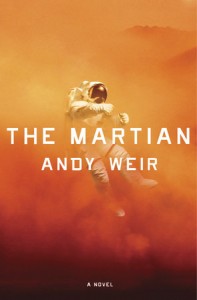 As a kid, I was drawn a lot more to fantasy than to science fiction, mostly because, in science fiction, you have to suspend your disbelief regarding things that are rooted in science, while in fantasy, that foundation is explicitly thrown out at the beginning. That is, in fantasy, with its magic, dragons, elves, and demons, there was no pretense that the world could exist or was based on some realistic description of nature. Rather, that idea was tossed away and a new world with new rules was built. Science fiction, on the other hand, was meant to be an extension or extrapolation of our scientific understanding of the world and thus, in my mind, required a greater deal of substance to justify the more outlandish places that extrapolation took the author.
As a kid, I was drawn a lot more to fantasy than to science fiction, mostly because, in science fiction, you have to suspend your disbelief regarding things that are rooted in science, while in fantasy, that foundation is explicitly thrown out at the beginning. That is, in fantasy, with its magic, dragons, elves, and demons, there was no pretense that the world could exist or was based on some realistic description of nature. Rather, that idea was tossed away and a new world with new rules was built. Science fiction, on the other hand, was meant to be an extension or extrapolation of our scientific understanding of the world and thus, in my mind, required a greater deal of substance to justify the more outlandish places that extrapolation took the author.
That said, there is a genre of science fiction, called hard science fiction, that Wikipedia characterizes as having a much stronger emphasis on scientific accuracy. The Martian, by Andy Weir, is an excellent example of this genre.
I haven’t seen the movie, though I imagine many others have. I actually read the book back in the spring, before the movie came out. The plot details the exploits of an astronaut who finds himself abandoned on Mars. For those who haven’t read the book nor seen the movie, I won’t spoil the plot any further.
What I will say is that the plot takes scientific accuracy to an extreme, with the protagonist doing everything he can with the equipment he has to stay alive. Weir has been praised for the accuracy of his science by many professional scientists. Of course, there are a few quibbles here and there, but overall, the book strives for, and achieves, a very high degree of scientific authenticity. It is maybe not a surprise to learn that Weir grew up in Los Alamos, New Mexico.
For a book that centers, for the most part, on one man lost on effectively a very remote and very plain island, the plot is fast paced and intriguing. On many occasions, one can’t help but wonder how the hero will solve the next problem he encounters.
If I have one major quibble, it isn’t with the science itself (though I’m certainly not qualified to judge most of it in any technical depth), but rather that one person could be such an expert in so many disciplines. That is a conceit that a novel like this much have, but it is the one place where maybe a suspension of disbelief is really necessary to enjoy the story.